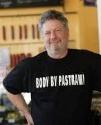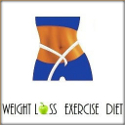-
My Weight Loss Story: Reversing Type 2 Diabetes
Wednesday, March 26th, 2025by Ken Gordon, Professional Chef
It’s a date I will never forget: January 12, 2012, I walked into my Naturopath’s office – my first medical appointment of any kind in 7 years – and was given my diagnosis.
I was told that I was obese (5’11” and 239 lbs.) with high blood pressure (166/90), high cholesterol (265), and my triglycerides were a whopping 343.
I suspected most of that. But then I was told I had Type 2 Diabetes. I know what they mean now about your life flashing before your eyes.
10 weeks later – March 21st to be exact – and the next blood test. This time a different story, though no less startling. Weight 219 – a 20 lb. loss. Blood pressure 144/84. Cholesterol 214, and trigycerides plummeted to 126.
And most importantly, my Diabetes – marked in my original diagnosis by a blood glucose level of 185 (100 is considered the cutoff number for Diabetes) was virtually reversed with a new blood glucose level of 107.
And at my latest appointment on April 17th – 4 weeks after the reversal – my weight was down to 212 lbs. and blood pressure at 137/78.
Did I take drugs? Nope. Surgery? Nuh, uh. Some kind of radical or highly regimented diet? Negative. So, what then?
Weight Loss: Success Comes from Within
To be honest, it was really all about breaking cycles. And creating new ones. Starting to do the things I’ve known for years I should have been doing.
Things we all know we should have been doing… Because as much as doctors and diet gurus and trainers and public health officials and insurance companies and ex-wives all tell you they’ve got the answers to our health and fitness problems, the only solution that really works comes from you.
And the only person who is going to make sure that solution is right for them, put it into effect, follow through and make it work? Same person.
I’m a Chef, and as such I have some advantages. I work hard, and burn up a lot of calories in doing so. I’m well organized and disciplined, both by my nature and as an occupational necessity.
And maybe most importantly, I have skills – I can pretty easily come up with all sorts of creative ways of preparing healthier foods – foods that are better for losing weight and treating what ails me – that are pretty satisfying substitutes for the things I know I must cut down on, or eliminate from my diet.
But there are also some pretty sizable disadvantages to being a Chef and trying to improve my health and fitness. Temptation. It’s a bit like being an alcoholic and working as a bartender.
There’s always food around. Lots. And not just food, but foie gras and pastrami and Cabernet and French fries and butter sauce and microbrews and Brie and duck fat and bacon and… you name it.
It’s always at your fingertips, to the point where sometimes you’re scarfing some and you don’t even realize it. Now, noshing all the time – taking small bites through the day – is not necessarily a bad way to eat.
Especially when you’re moving around a lot at the same time. Some would say it might even be beneficial.
Except when Chefs do it, it’s 100’s of these bites, and very caloric ones. So on balance, it’s more or less a wash, and most of the advantages that Chefdom brought to my pursuit of health and fitness were likely negated. In other words: If I can do it, so can you.
The thing I had going for me was that I was scared. Big time. And maybe for the first time. I’d never had a real health scare before.
And I had some good advice – my wife Leslee, who is a Pilates instructor and former dancer and knows a lot about eating well, getting in shape and staying in shape.
And my Naturopath – Dr. Martin Milner – who knew enough to give me the space to figure some stuff out. Beyond that, it was mostly a bunch of resolves, and consistency, and stick-to-itiveness.
Eliminate Refined Carbohydrates and Refined Sugars
First thing I resolved: no more refined carbs and sugars. None. At least for awhile.
No bagel every morning (and keep in mind, I own a Jewish delicatessen, which makes its own bagels. And very good ones at that!). No sweet drinks. No fast food drive-thru’s when the occasional cravings hit.
No hoagies, or white rice, or white pasta, or French fries. Or croissants or muffins or chocolate chip cookies. And all the rest.
And portion sizes. Smaller. Trying to determine when I’ve eaten until I’m satisfied, instead of full. Or stuffed. More vegetables, fruit and salad. I won’t give up meat or fish, but in general the portions were smaller and a bit leaner.
And exercise. Not once in awhile, when I felt like it, or could fit it into my busy schedule. Daily – that means every day. It doesn’t have to hurt, or exhaust, or consume your life. I’ve always loved to walk. So I walked. Every day 2-3 miles. Now 3-4.
Losing Weight is a Numbers Game
The thing about dropping weight, it’s a pretty simple numbers game. Burn up more than you take in. Easy. I went from 3500-4000 calories per day to 1500-1800. Add in my daily routine, walking 3 miles, and just plain breathing and voila… a couple of pounds per week off the love handles.
Okay, I’m leaving out a pretty important element here. What do you get out of all this? What’s in it for you? Sure, you maybe get to live a bit longer.
And feel and look a lot better. More energy. Clearer head. Maybe improvements in your eyesight, your skin, heck… maybe even sex is better.
Finding the Motivation to Lose Weight
But that’s all in the future. What about now? How do you get motivated and stay motivated to actually start and continue doing the things that will get you to all those good changes in your life?
The reason that most diets don’t work very well is that the dieter – that would be you – hates dieting. And the reason you hate dieting and tend to have trouble staying on it is that you’re always hungry.
And when you finally get something to eat, it’s usually not something you really like eating. So you go off it. And often, you binge.
Same thing with exercise. Me, whenever I’d start an exercise program, I’d get all gung-ho about it, work out doing something really boring, then get so sore I couldn’t do it again for 5 days. Then I’d end up getting discouraged and chuck the whole damn thing.
A Diet and Exercise Regimen You Enjoy is Key
The key to this is finding a regimen that you are going to enjoy. Or at the very least, not dread. Because that’s the only way you’ll stay on it.
And I don’t care how effective a diet can be, or how many calories an exercise routine burns, or how sound the advice of your doctor: If you’re not going to follow through with it, it’s worthless. To you.
So find a healthy way to eat that you can still enjoy. Which means including some of the things you enjoy eating. But with moderation. And thoughtfulness.
Eating well and healthfully is all about budgeting – being a bit leaner with your breakfast when you know that lunch will be a little richer. Adding more veggies to the plate and cutting the starch.
Get with an online calorie and nutrition counting program. I used myfitnesspal.com. I don’t know if it’s the best, but it’s popular, and free, and it works. It will make you think about what you consume, and what you burn up.
And find an exercise routine that’s fun for you, and that fits your lifestyle and energy level. I walk, and it does the trick without expensive gear, or health club fees, or silly clothing, or trainers that yell at you.
And you get to breathe fresh air and meet your neighbors. And do this all today, before you find reasons not to. Or get a scary diagnosis so you have to.
(published April 23, 2012)
 Professional Chef Ken Gordon is the founder of Kenny & Zuke’s Delicatessen and Kenny & Zuke’s SandwichWorks, located in Portland, Oregon. Gordon, who claims a lifelong devotion to “all things fatty, salty and sweet,” knew his life had to change when his doctor told him he had Type 2 diabetes. Ken set a goal of losing 40 to 50 pounds within six months, chronicled in a regular column in The Oregonian newspaper called “Diary of a Diabetic Chef.” Ken’s diet and lifestyle changes have now effectively reversed his diabetes.
Professional Chef Ken Gordon is the founder of Kenny & Zuke’s Delicatessen and Kenny & Zuke’s SandwichWorks, located in Portland, Oregon. Gordon, who claims a lifelong devotion to “all things fatty, salty and sweet,” knew his life had to change when his doctor told him he had Type 2 diabetes. Ken set a goal of losing 40 to 50 pounds within six months, chronicled in a regular column in The Oregonian newspaper called “Diary of a Diabetic Chef.” Ken’s diet and lifestyle changes have now effectively reversed his diabetes.


